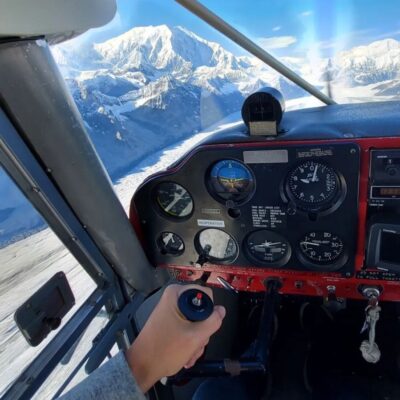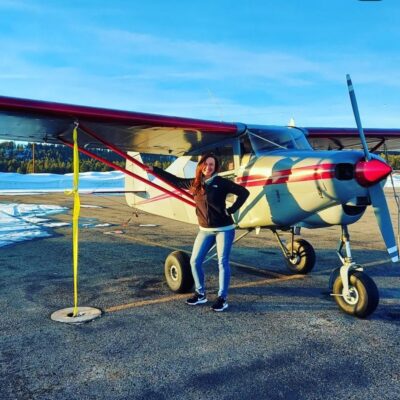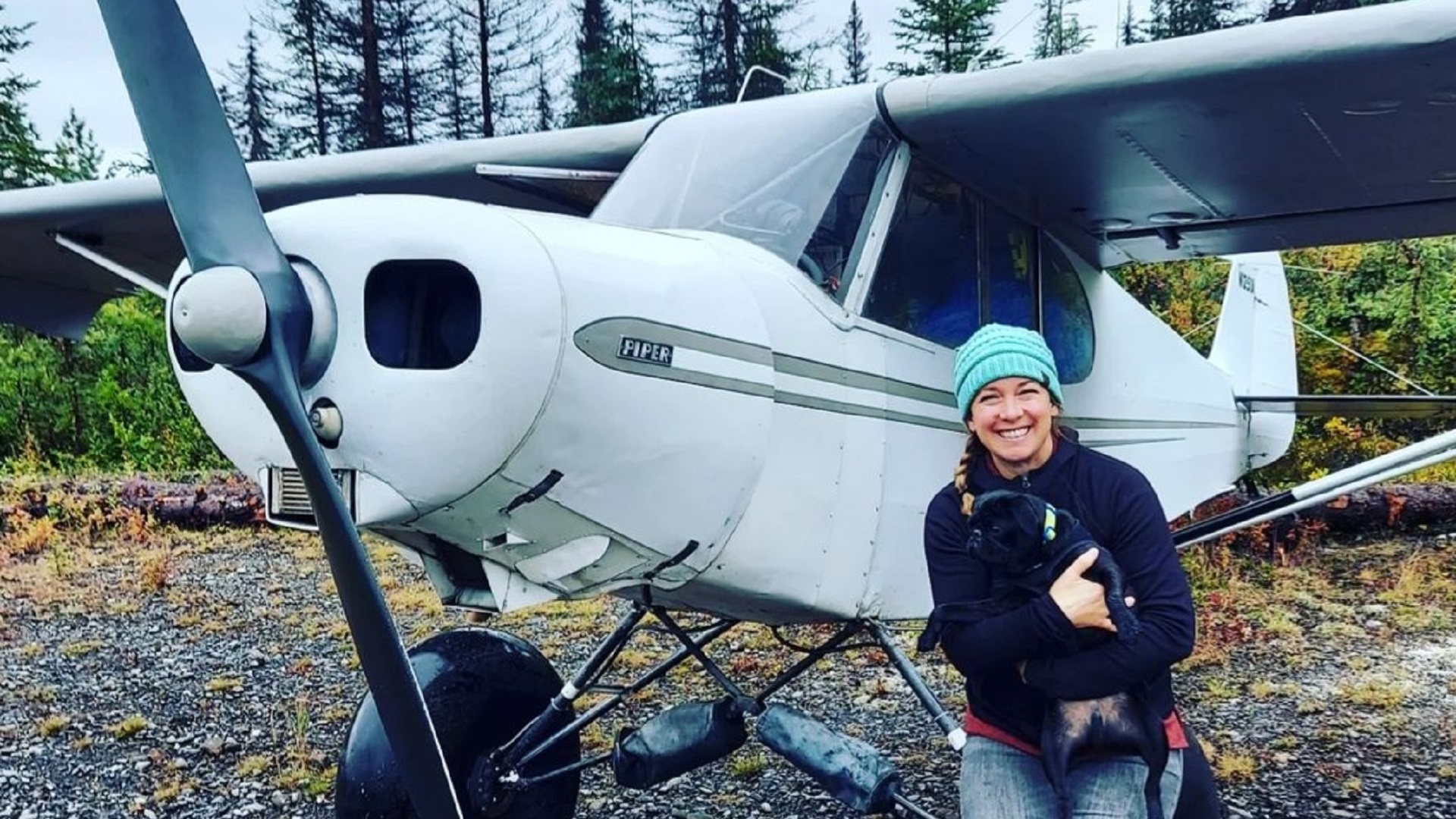 Growing up in Alaska with an aviation business and flying airplanes with my dad Don Lee, who was a well known bush pilot, I was always a curious child. I would ask him questions about the instrumentation in the aircraft and I wanted to know what everything meant. He would never tell me. Instead, he would say: «Focus on the horizon, looking outside of the plane will tell you everything you need to know. You have to feel the airplane.»
Growing up in Alaska with an aviation business and flying airplanes with my dad Don Lee, who was a well known bush pilot, I was always a curious child. I would ask him questions about the instrumentation in the aircraft and I wanted to know what everything meant. He would never tell me. Instead, he would say: «Focus on the horizon, looking outside of the plane will tell you everything you need to know. You have to feel the airplane.»
By the way something very typical for pilots in Alaska.
This became quite embarrassing when I started training for my private pilot certificate and did not know anything about the equipment in the aircraft. There were moments in my early flying that I would get fixated on the instruments and the plane was not doing what I wanted it to do because I was not taking my father’s first piece of advice: «Focus on the Horizon.»
Instrumentation in the aircraft tells you many important details: fuel gages, oil pressure, oil temperature, amp meter, turn coordinator, compass, radio frequency, airspeed, altitude, altimeter, tachometer, manifold pressure, cylinder temperature etc. Larger aircrafts can be even more complex with many more instruments and information. These details are crucial to know and it’s important to pay close attention to them. However, until you develop a system for them to help you and not distract you, it can be confusing.

In business, it is also easy to get bogged down with details and by a flood of information in daily life. There are so many decisions to be made in one day that it can be overwhelming and exhausting. The instrumentation in the plane represents the details. Are they important? Absolutely! Can they overwhelm you and distract you from the bigger picture? For sure!
So, how does one be a safe, vigilant, and competent pilot – paying attention to the horizon and everything else that needs to be monitored?
You must have a vision, a True North Star! This focus is outside of the aircraft and something that creates a purpose for your business that is bigger than small scale navigation tasks. Never forget where you are going and why.
Today I’m running my own aviation business as CEO in one of the most exciting and most adventurous pilot’s paradises: In Alaska.
Alaska is beautiful but it is also a tough and challenging place to live and for business.

For my business Alaska Floats and Skis @ AK8, we have a mission of making aviation a safer and more equitable industry. We do this by offering a plethora of scholarships, introducing a CFI course to help create a positive ripple effect in the industry with high quality CFIs, and by offering specialized training and instruction to pilots from all over the world coming to fly with us.
For me, personally, my 11 year old son is my focus and that drives my success. When I feel frustrated by the day-to-day tasks, I remind myself to be grateful that I have I get to live in Alaska and provide my son with the opportunities to fly and live an adventurous life.
One thing I have recently tried to do is change the words «I have to» to «I get to.» For example, «I have to do payroll» can change to: «I get to do payroll.»
Make your work an opportunity, not an obligation! Make it a passion!
Learn to scan and refocus. In order to stay focused on your horizon, you can scan the instruments quickly and refocus on the bigger picture. Should you evaluate your business budget, make sure your employees feel appreciated, and do payroll on time? Yes. Do all these things, but keep your eyes on the prize, the horizon, the vision, the purpose, the True North Star, you are aiming for.
Learn to trust your intuition in business life, as well.
Experience gives you the skills to manage all aspects of flight. There is nothing, that can replace experience. New pilots get overwhelmed, disoriented, stressed, and confused when they don’t understand all the components, that work together to create harmonious flight operations. As pilots gain more experience, they acclimate to the new information and begin to use it to their advantage. This is the same with business and anything in life for that matter.
Great pilots can tell you what the instruments are doing without even looking at them because they are looking at the horizon and they are feeling the aircraft!

Also in business: have a mission and vision, scan and re-focus, avoid small-scale navigation and keep building new experience.
Focus on your horizon and never lose sight of your «Why», your «Purpose», your «TRUE NORTH STAR»!

